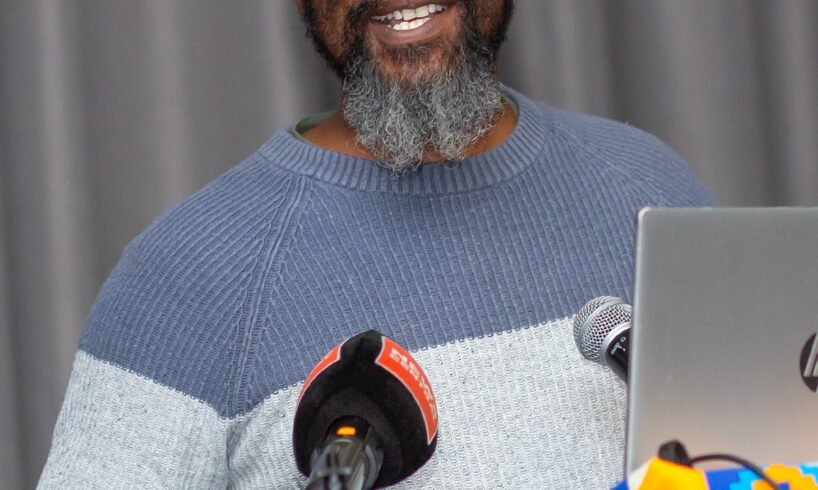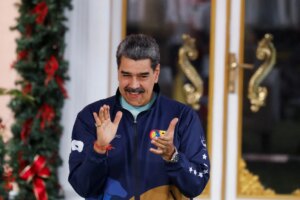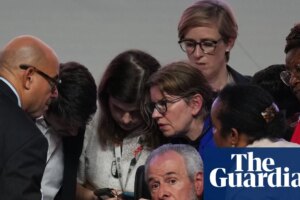
1 de 1
Mikatekiso Kubayi — Foto: Divulgação Mikatekiso Kubayi — Foto: Divulgação
As Brazil’s successor to the presidency of the G20—a group composed of 19 countries, plus the European Union and the African Union—South Africa aims to consolidate the progress achieved by developing nations within the bloc of major economic powers since Indonesia’s leadership in 2022 and Brazil’s in 2024. However, the country faces the challenge of navigating an increasingly tense international environment and the isolationist stance of U.S. President Donald Trump.
Civil society representatives and South African officials have expressed concern about the outcomes of this year’s forum and the future of the G20, as the United States prepares to assume the rotating presidency of the bloc on December 1. The handover will mark the end of a sequence of presidencies from the so-called Global South.
The remarks were made during a seminar organized by International Development Economics Associates (IDEAs), in partnership with South African institutions and universities, held in Johannesburg at the end of September. The G20 summit of heads of state is scheduled to take place in the city on November 22 and 23.
“Our goal is to sustain and consolidate what have been the gains of the Global South presidencies—with Indonesia, India, Brazil, and now ourselves. But all evidence indicates that it will be a significant challenge beyond December 1, 2025, when we hand over leadership,” said Mikatekiso Kubayi, senior researcher at the Institute for Global Dialogue (IDG), one of the institutions coordinating the T20 (Think Tank 20).
The G20 represents 85% of global GDP and two-thirds of the world’s population. Each year, one member country serves as the forum’s chair. According to experts, the presidencies of Indonesia in 2022, India in 2023, and Brazil in 2024 advanced the inclusion of social, gender, and climate justice issues on the group’s agenda.
Brazil successfully secured the inclusion of wealth taxation in the final declaration signed by G20 leaders in Rio last November and obtained unanimous support for the Global Alliance Against Hunger and Poverty, despite intensifying disputes over the conflicts in Gaza and Ukraine.
Founded in 1999 as an economic forum to address the crises of that period, the G20 expanded its role after the 2008 financial crisis. Since then, the group has incorporated discussions on climate change and geopolitical tensions and has begun holding annual summits of world leaders.
Today, the G20 operates along two main tracks: the financial track and the Sherpa track—the latter referring to diplomats who coordinate negotiations leading up to the summit of heads of state.
The international landscape, however, has faced a setback since President Donald Trump took office in January. In line with the “America First” policy and amid the weakening of multilateral institutions such as the United Nations and the World Trade Organization, the White House has signaled its intention to withdraw from social agendas and refocus the G20 on economic issues.
The U.S. stance of returning “back to basics” was reinforced by U.S. Undersecretary of State for Political Affairs Allison Hooker during the second meeting of G20 foreign ministers, held on the sidelines of the UN General Assembly in New York in September.
“The Trump administration urges all G20 members to return to the original principles and restore this forum to its rightful place. As the next chair of the G20, the U.S. will lead this return to basics,” Mr. Hooker said.
A representative from Pretoria, as reported by Valor, stated that South Africa’s presidency remains in ongoing dialogue with the United States to ensure continuity of the country’s priorities in 2026, when the U.S. assumes leadership of the group.
Negotiators have also been working to reach a consensus before the leaders’ summit, according to a government official. U.S. President Donald Trump is not expected to attend the meeting in Johannesburg.
Although G20 decisions are not legally binding—meaning member countries are not obligated to adopt them—they must be reached collectively, which enhances the bloc’s influence on economic and geopolitical issues. When consensus is achieved, the resolutions are published in a communiqué issued by the heads of state at the close of the summit.
For Brazilian diplomacy, the U.S. undersecretary’s remarks signaled that Washington intends to take a more active role in the group’s meetings, positioning itself against the sustainable development agenda advanced by countries of the Global South. Brazil, South Africa, and the United States currently form the G20 troika, which brings together the group’s three successive presidencies.
Rob Davies, South Africa’s former minister of trade and industry, believes the U.S. position will make it more difficult for the country’s presidency to achieve consensus. “While it was already challenging to deal with these issues when the Global North was not particularly willing to go very far down that path, we now have an administration in the U.S. that truly does not want agendas for change in the direction of development and inclusion,” he said.
Mr. Davies, who served in the South African government from 2009 to 2019, added that the U.S. is now adopting a more assertive stance. “We will likely see difficulties for the country to reach a declaration, and it will be an arduous task to ensure that such a declaration contains enough of what we want,” he said.
Although they emphasize that it is still too early to predict whether the South African summit will conclude without agreement, Brazilian and South African officials interviewed by Valor admit that realism is necessary. “We have to calibrate expectations. The South Africans will need to make a major effort because the international context has deteriorated this year,” said a Brazilian diplomat.
The reporter’s travel costs were covered by IDEAs.
Translation: Todd Harkin
Mais recente
Próxima
In call with Lula, Trump complains about rising coffee prices





